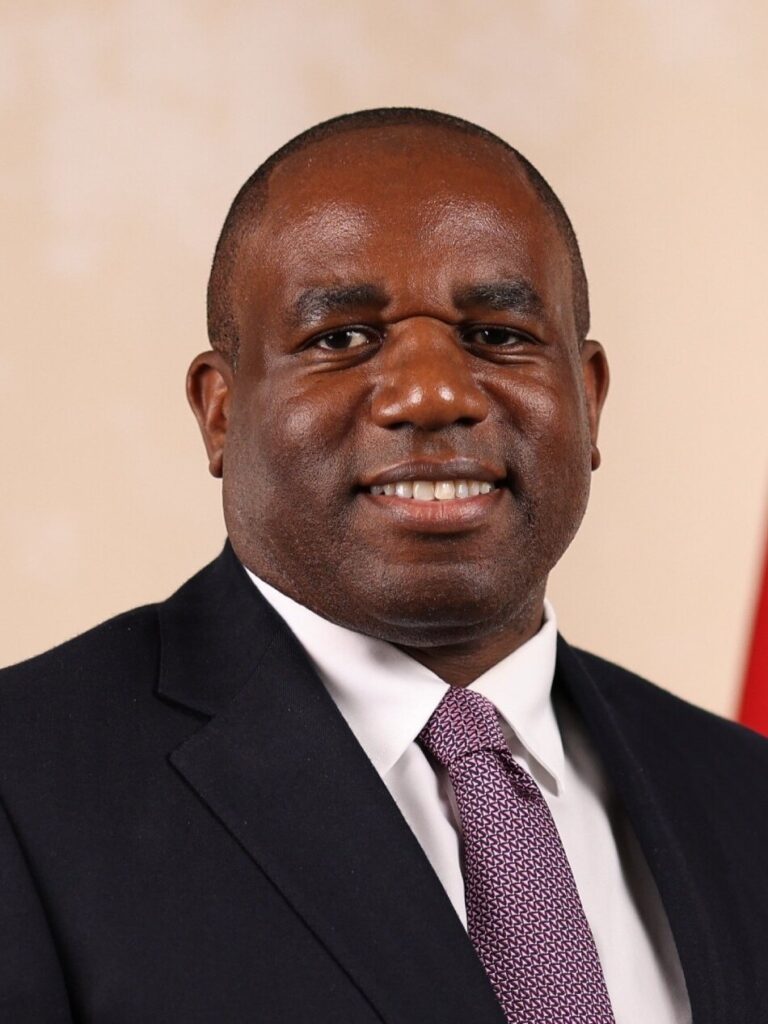David Lammy became Britain’s new Deputy Prime Minister following the dramatic resignation of Angela Rayner over her tax affairs, in a Cabinet reshuffle that has already redrawn the political map of Sir Keir Starmer’s Government.
Mr Lammy, currently the Foreign Secretary, will not only step into Rayner’s shoes as Deputy Prime Minister but is also expected to take over the Ministry of Justice. This move comes as part of sweeping changes across Whitehall that signal a recalibration of Starmer’s leadership team after a bruising week for Labour.
Yvette Cooper Moves to Foreign Office
In another major shift, Yvette Cooper is understood to be leaving her post as Home Secretary to replace Mr Lammy at the Foreign Office. Senior officials described the decision as one of the most significant moves in the reshuffle, with far-reaching consequences for both domestic and international policy.
Sources told The Telegraph that Shabana Mahmood, the current Justice Secretary, is the frontrunner to replace Ms Cooper at the Home Office. If confirmed, Mahmood will inherit the government’s most politically sensitive brief — tackling the small boats crisis and accelerating the closure of asylum hotels.
More than 50,000 people have arrived in Britain via small boats since Labour took power 14 months ago, testing the government’s credibility on immigration. Cooper and Starmer had jointly pledged to close asylum hotels by the end of the current Parliament amid mounting protests from communities hosting them.
Read Also:
Putin warns western troops in Ukraine would be ‘legitimate targets’
UK Deputy Prime Minister quits over stamp duty scandal
Asylum seeker ordered out of UK for reoffending days after deportation ban
Rayner’s Shock Departure
The reshuffle was triggered by the shock resignation of Angela Rayner, who quit as Deputy Prime Minister, Housing Secretary, and Labour’s deputy leader after a Telegraph investigation revealed she had failed to seek proper tax advice on the purchase of a second home. The inquiry found she had avoided paying around £40,000 in stamp duty.
Sir Laurie Magnus, the Prime Minister’s independent adviser on ministers’ interests, concluded that Rayner had breached the ministerial code by failing to meet the “highest possible standards of conduct,” despite acknowledging her integrity and service.
Her departure is seen as the most damaging blow to Starmer’s 14-month-old administration, not only because of her seniority but also because she was elected as Labour’s deputy leader by party members, giving her a mandate separate from the Prime Minister’s.
A Divisive Home Office Record
Ms Cooper’s expected removal from the Home Office follows a series of crises during her tenure. She faced criticism over her handling of the Southport riots and renewed scrutiny of historical child exploitation scandals.
Her relationship with Chancellor Rachel Reeves also became strained during last year’s spending review, where the Home Office clashed with the Treasury over budget allocations for policing and border enforcement.
Despite these tensions, some officials said her move to the Foreign Office was not a demotion but a strategic repositioning, with Starmer keen to leverage her experience in international diplomacy. However, until Downing Street confirms her new role, uncertainty remains about her future.
Mahmood Steps Into the Spotlight
If Shabana Mahmood is confirmed as the next Home Secretary, she will face immediate pressure to deliver results on illegal migration, one of the defining issues of the Labour Government. She will also be tasked with steering the Home Office through ongoing debates on counter-terrorism, policing reform, and community safety.
Mahmood’s move would mark a meteoric rise within the Cabinet, positioning her at the helm of one of the four great offices of state just 14 months into Starmer’s government.
Wider Reshuffle Fallout
The Prime Minister has already made other significant changes. Ian Murray was dismissed as Scotland Secretary, while Lucy Powell lost her role as Leader of the House of Commons. These shifts reflect Starmer’s willingness to act decisively as he attempts to regain control of the political narrative.
The combination of Rayner’s resignation, Cooper’s expected redeployment, and Lammy’s promotion represents one of the most significant reshuffles of recent years. It signals both an attempt to steady the ship and a recognition that the government’s credibility is at stake on multiple fronts — from immigration and justice to economic management and foreign policy.
Looking Ahead
For Lammy, who has built his reputation as an outspoken campaigner and seasoned parliamentarian, the new dual role as Deputy Prime Minister and Justice Secretary cements his position at the heart of Starmer’s government. But it also saddles him with the responsibility of restoring public trust in a Cabinet rocked by scandal and division.
As Labour braces for the challenges ahead — surging migration numbers, fragile public confidence, and questions about competence — the success of this reshuffle may determine whether Starmer’s government can survive its early crises and maintain its promise of stability.



